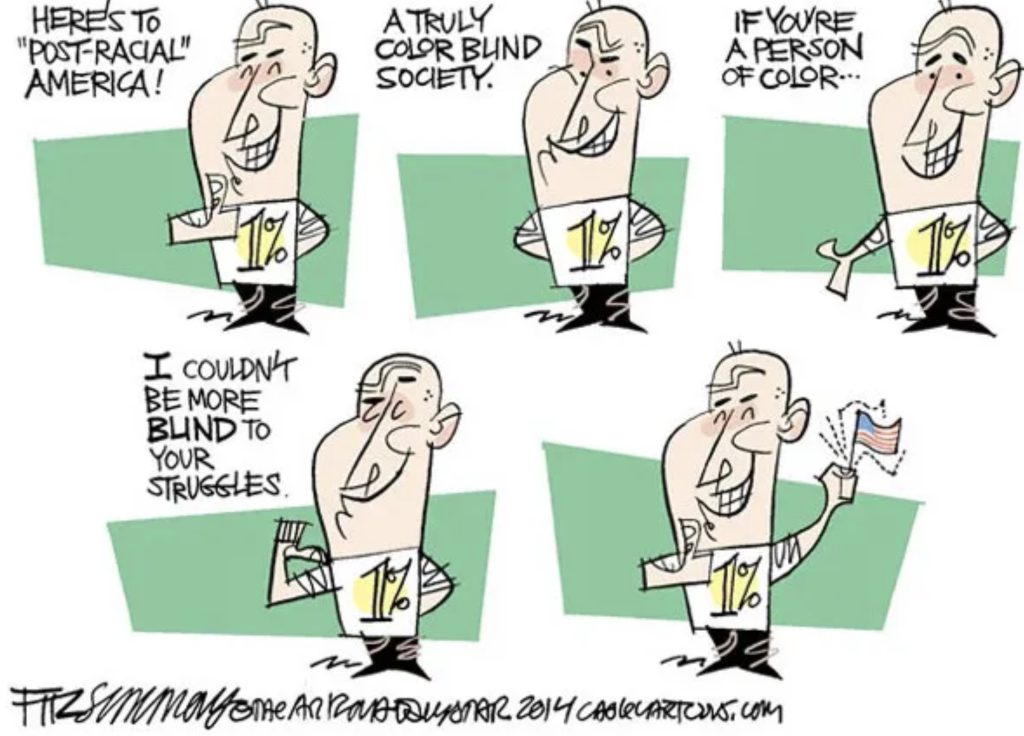Welcome to this post on Afro-Pessimism where we will dive deep into the complex world of Afro-Pessimism, an intellectual movement that has sparked intense debates within academia and activism sectors. The key concepts, strengths and weaknesses of Afro-Pessimism will be highlighted. A few areas where Afro-Pessimism has had an impact will be mentioned. An honourable mention of how datafication has helped Afro-Pessimism and vice-versa will cover the last section. Links to video talks and books from Afro-Pessimists are also included.
The very name of Afro-Pessimism invites a feeling of negativity. However, the subject must be approached from the motto “Pessimism of the intellect, optimism of the will” which was popularised by the famous scholar Antonio Gramsci. I invite you to join the conversation, share your thoughts, and explore this intricate discourse with us.
Before we go any further, let’s define what Afro-Pessimism is. Afro-Pessimism is a critical theory that emerged in the 1990s, primarily developed by scholars like Frank B. Wilderson III and Jared Sexton. It challenges conventional understandings of race, oppression, and liberation, arguing that anti-Blackness is a foundational aspect of modern society. Afro-Pessimists contend that the very structure of society is built upon Black suffering and subjugation, making traditional notions of progress and equality insufficient for addressing the Black experience. Afro-Pessimism thought has influenced activism and advocacy initiatives by highlighting the need to confront the fundamental structures of anti-Blackness and to address issues of social justice more comprehensively.
What are some of the key aspects of Afropessimism?

The Anti-Blackness concept pushes back against the notion that all racial and ethnic minority groups have similar lived experiences that can be generalised into one category like POC (People/Person of Colour) and BIPOC (Black, Indigenous, & People of Colour). This does not mean that other marginalised communities are excluded. One of the tenets of anti-Blackness struggle is liberation that encourages solidarity, i.e. we are not free until all are free. Thus, support for one oppressed group does not exclude support for others.
The second key aspect of Afro-Pessimism is Intersectionality. Intersectionality is the concept that describes the ways in which systems of inequality based on gender, race, ethnicity,sexual orientation, gender identity, disability, class and other of discrimination “intersect” to create unique and complex effects. All forms of inequality are mutually reinforcing and therefore have to be analysed simultaneously to prevent one form of inequality reinforcing another.
Post-racial society suggests that there no longer exists racial prejudice, preference, and discrimination in society, i.e. The label of post-racial indicates that racism no longer exists and people are able to make race-free judgments. This was the euphoric feeling after the election of Barack Obama as the first black US president when this single instance was used to deny the existence of reality for the majority, an illusion that was quickly dispelled [4]. In today’s world, racist rhetoric has gone up several notches that it is impossible to imagine what would bring about a post-racial world.

Colourblindness is a concept related to racial identity and anti-Blackness. It is used to critique a particular approach to addressing racial issues. Colourblindness is the idea that equality must be promoted without race being a factor. In Afro-Pessimism, colourblindness is seen as a form of denial that ultimately perpetuates anti-Blackness and fails to bring about meaningful change in addressing racial disparities.
What are the pros and cons of Afro-Pessimism?
Afro-Pessimism is a theoretical framework that tries to examine the continual impact of anti-Blackness on non-white communities. Below is a list of some positive and negative aspects of Afro-Pessimism.
Strengths of Afro-Pessimism
- Afro-Pessimism challenges traditional narratives of progress and post-racial society.
- Afro-Pessimism centers the experiences of marginalised communities, particularly Black individuals.
- It encourages critical thinking and dialogue about systemic racism.
- Afro-Pessimism provides a deep and critical analysis of anti-Blackness and racial oppression, challenging conventional narratives and offering a comprehensive understanding of the ongoing struggles faced by Black individuals.
- Afro-Pessimism forces a reckoning with historical legacies of slavery and systemic racism, which are often overlooked in mainstream discourse. The historical perspective is essential for understanding contemporary racial disparities.
- Afro-Pessimism encourages an intersectional approach, recognising that anti-Blackness intersects with other forms of oppression, such as gender and sexuality. This understanding fosters solidarity among marginalised communities.
Weaknesses of Afro-Pessimism
- Critics argue that Afro-Pessimism can be overly pessimistic and discourage collective action as it portrays anti-Blackness as insurmountable and unchanging.
- Afro-Pessimism homogenises the experience of people of African descent and also somehow mischaracterises the experiences of non-African colonised people.[5]
- Some feel it undermines efforts towards racial equality and justice as it is a subject of debate and controversy within academic and activist circles.
- Its complex and abstract nature can be challenging to grasp, as it requires familiarity with critical race theory and related academic fields.
- Afro-Pessimism has been criticised as not offering clear or practical solutions for dismantling anti-Black structures, which may leave individuals and activists searching for more actionable strategies.
The section above shows that Afro-Pessimism offers a critical and thought-provoking framework for understanding anti-Blackness and racial oppression. It challenges the status quo and encourages a comprehensive analysis of racism’s structural underpinnings. However, its pessimistic tone and complex theoretical nature has generated debate and criticism, with some arguing that it may be overly negative or lacking in practical solutions.
At this juncture, I suggest a short detour to hear from the Afro-Pessimist scholars why they consider the theory to be useful and relevant in today’s activist fight for a fairer world.
What has datafication got to do with Afro-Pessimism?
Datafication seems to be synonymous with ideals of efficiency and improved decision-making, i.e. algorithms will mete out equal treatment by being objective, unbiased and independent from personal conditions. However, this is difficult to imagine where structural discriminatory boundaries exist. As pointed out in the first introduction blog, technology is not neutral; it is entwined and influenced with values and ideologies of the prevailing contemporary ideological trends. As mentioned in the section above on the practicality of Afro-Pessimism, aspects of datafication such as automated decision-making within employment services, data-driven methods within public service media, and the digitalisation of the corrections sector disproportionately affect ethnic minorities and also the poor in general.
Examination of historical data concerning the legacy of slavery and its continued impact on contemporary racial disparities provide a foundation for Afro-Pessimist arguments about the enduring nature of anti-Blackness. Datafication has proven useful when the collection and analysis of data helps to identify racial disparities in various aspects of life, such as education, criminal justice, healthcare, and economic opportunities. Analysis of surveillance and policing data is helping to highlight the disproportionate targeting, arrests, and violence faced by Black individuals. The healthcare data about the COVID pandemic shows that a higher number of deaths was reported amongst black communities than other contemporary communities. ”The incompleteness of the racial data on COVID-19 mortality is a telling omission when positioned in an epistemological space where so much is known about the pandemic and racism’s violence on Black bodies”[3].
What about some recommendations on which books to read you ask?
Being a broad and complex subject, there are a number of books available if interested in diving deeper into Afro-Pessimism. Click on the arrow for a list of some of the books. ➡
- “Afropessimism” by Frank B. Wilderson III
This book is considered a foundational text in Afro-Pessimism. Frank B. Wilderson III explores the concept of Afro-Pessimism, tracing its roots and implications. He discusses the notion that Blackness is constructed through slavery and argues that anti-Blackness is essential to the structure of modern society. - “Afro-Pessimism: An Introduction” by David Marriott
David Marriott provides a concise introduction to Afro-Pessimism, covering its key concepts and the contributions of prominent thinkers in the field. This book serves as an excellent starting point for those new to the theory. - “The Long Emancipation: Moving Toward Black Freedom” by Rinaldo Walcott
While not exclusively about Afro-Pessimism, this book by Rinaldo Walcott delves into the ongoing struggle for Black freedom and the complexities of Black liberation. It offers valuable insights into the broader context in which Afro-Pessimism operates.
Now a short summary: Afro-Pessimism is a complex and thought-provoking theory that challenges our understanding of racism and oppression. I hope that you, the reader, managed to catch a glimpse of the importance of datafication and its impact on subject that may be academic but have real consequences in modern society. The fight against inequalities is an uphill battle, with constantly shifting narratives and metamorphosing geopolitical and economic interests. Data helps to highlight the inadequacies of social policy but also may help in the perpetuation of existing inequalities.
References
- https://www.bu.edu/antiracism-center/files/2022/06/Anti-Black.pdf
- https://pomeps.org/disarticulating-blackness-or-the-semantics-of-antiblackness-in-tunisia
- https://www.ncbi.nlm.nih.gov/pmc/articles/PMC8872813/
- https://whyy.org/articles/myth-post-racial-america/
- https://www.ideology-theory-practice.org/blog/against-afropessimism